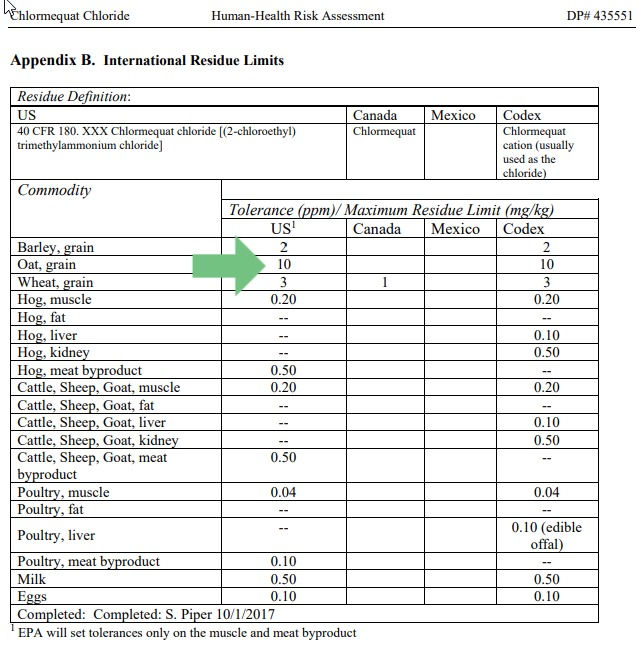Pesticides Linked to Reproductive Health found in Oat Based Foods
- Ashley Mooney
- Feb 28, 2024
- 2 min read

Introduction
Chlormequat Chloride is an agricultural chemical first registered in the USA in 1962 as a plant growth regulator. Chlormequat chloride works through inhibition of gibberellin hormones (Blocks hormones that stimulate growth prior to bloom). In turn, this produces thick and sturdy plant stalks.
Animal Studies
During PubMeds study rats were orally exposed during pregnancy at 5 mg/kg bw , a dose equivalent to the acceptable human intake, set by the World Health Organization (WHO). This study helped to determine the side effects of Chlormequat on embryo growth and postnatal health.
Increased embryo growth, GH and GH-Releasing hormones. In the babies of postnatal day they were observed to have increased head length, decreased body fat, hypoglycemia, hyperlipidemia and hyperproteinemia.
In conclusion, maternal exposure to Chlormequat Chloride during pregnancy disrupts the embryotic growth through its effects on growth regulators, and has negative effects on postnatal health.
Negative Side Effects in Humans
Disrupts embryonic growth
Produces postnatal adverse effects
Nausea / Vommiting
Tremors, seizures, coma
Cause liver damage (Long Term Exposure)
Cancer Hazard (Long Term Exposure)
Pesticide Tolerance Levels Permitted
In the USA there is currently an allowable tolerance of 10 ppm of Chlormequat Chloride in Oat Grain.
Latest Research
Chlormequat was detected in 45 of 50 (90%) of human urine samples. (2023)
Year | Chlormequat in Urine (%) | Concentrations (µg Chlormequat per g creatinine) |
2017 | 69 | 0.22 - 5.4 |
2018-2022 | 74 | 0.11 - 4.3 |
2023 | 90 | 0.27 - 52.8 |
This data indicates likely continuous exposure given the short half-life of Chlormequat in vivo, with low levels from 2017-2022 and higher levels of exposure in 2023.
Conclusion
As a society we must start to be aware of where we source our food, and ensure to buy only Organic foods if possible. Or better yet grow our own food at home, or support local farmers.
As a caution stay far away from Oat Grain found in the following brands:
General Mills Cheerios
Quaker Old Fashions Oats






Comments